#umberto eco
Quote
Now I realized that not infrequently books speak of books: it is as if they spoke among themselves. In the light of this reflection, the library seemed all the more disturbing to me. It was then the place of a long, centuries-old murmuring, an imperceptible dialogue between one parchment and another, a living thing, a receptacle of powers not to be ruled by a human mind, a treasure of secrets emanated by many minds, surviving the death of those who had produced them or had been their conveyors.
Umberto Eco, The Name of the Rose
#books#literature#texts#library#dialogue#dialectic#language#quotes#Eco#Umberto Eco#The Name of the Rose
431 notes
·
View notes
Note
A big thanks to you and your team for making Pentiment, it's an amazing game and it'll be with me for a long time I think, especially the personal and emotional character writing.
I'm curious about what was the inspiration behind, and creative motivation for including, the motif of the labyrinth. The church's painting of the Virgin Mary with the labyrinth seems striking in particular, especially because I don't remember ever coming across a strong association with labyrinths in Christian imagery.
Thank you. I'm glad it was so impactful.
Labyrinths have a long association with Christianity going back to the 4th century, when one was placed in a cathedral in Chlef (now in Algeria). This is known as the St. Reparata or St. Reparatus Labyrinth.
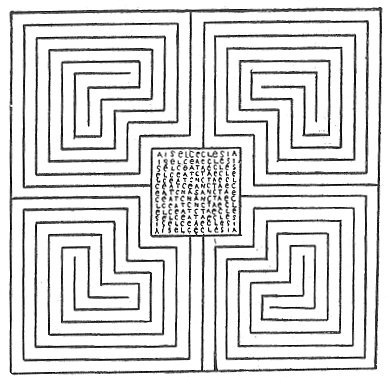
The Chartres Labyrinth was built around 1200.
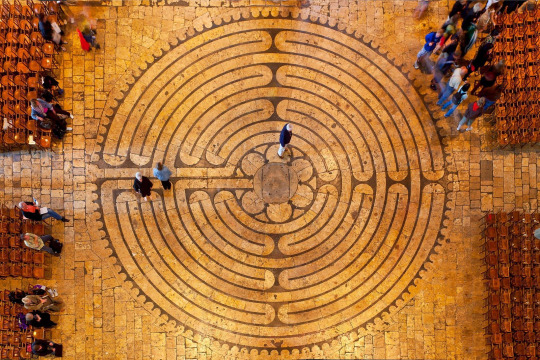
Christian labyrinths are meant to be walked while contemplating. The path twists and turns, but there is only one way to go. They also all clearly take inspiration from labyrinths of the classical world even if their purpose and origins are effectively lost to those who see them.
As Beatrice says to Andreas (paraphrased), the foundations of our memories become buried and invisible. And she is paraphrasing and abbreviating Plato speaking to Solon in Timaeus,
whatever happened either in your country or in ours, or in any other region of which we are informed-if there were any actions noble or great or in any other way remarkable, they have all been written down by us of old, and are preserved in our temples. Whereas just when you and other nations are beginning to be provided with letters and the other requisites of civilized life, after the usual interval, the stream from heaven, like a pestilence, comes pouring down, and leaves only those of you who are destitute of letters and education; and so you have to begin all over again like children, and know nothing of what happened in ancient times, either among us or among yourselves. As for those genealogies of yours which you just now recounted to us, Solon, they are no better than the tales of children. In the first place you remember a single deluge only, but there were many previous ones;
I also wanted the association with the labyrinth from The Name of the Rose, which in turn was inspired by the Reims Labyrinth.
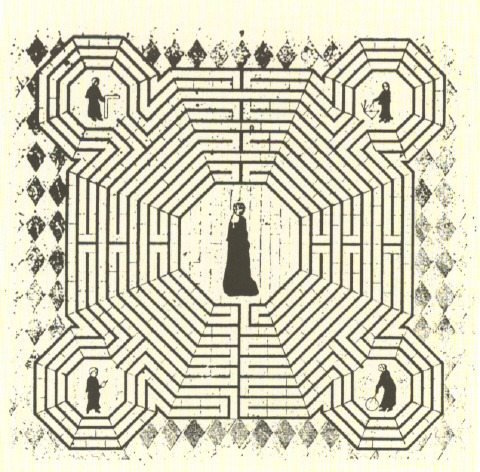
The Reims Labyrinth was constructed in the late 13th century but was destroyed in the 18th century by superstitious priests. It was through the discovery of drawings that modern scholars were able to recreate and project the path of the labyrinth onto the cathedral floor.
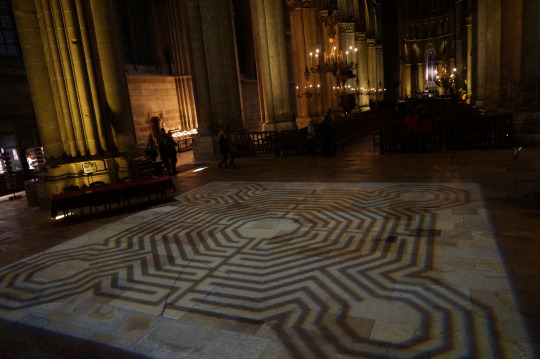
The cover of the 1st Italian edition (and therefore, first edition overall) of Il Nome della Rosa prominently incorporated the drawing of the Reims Labyrinth.
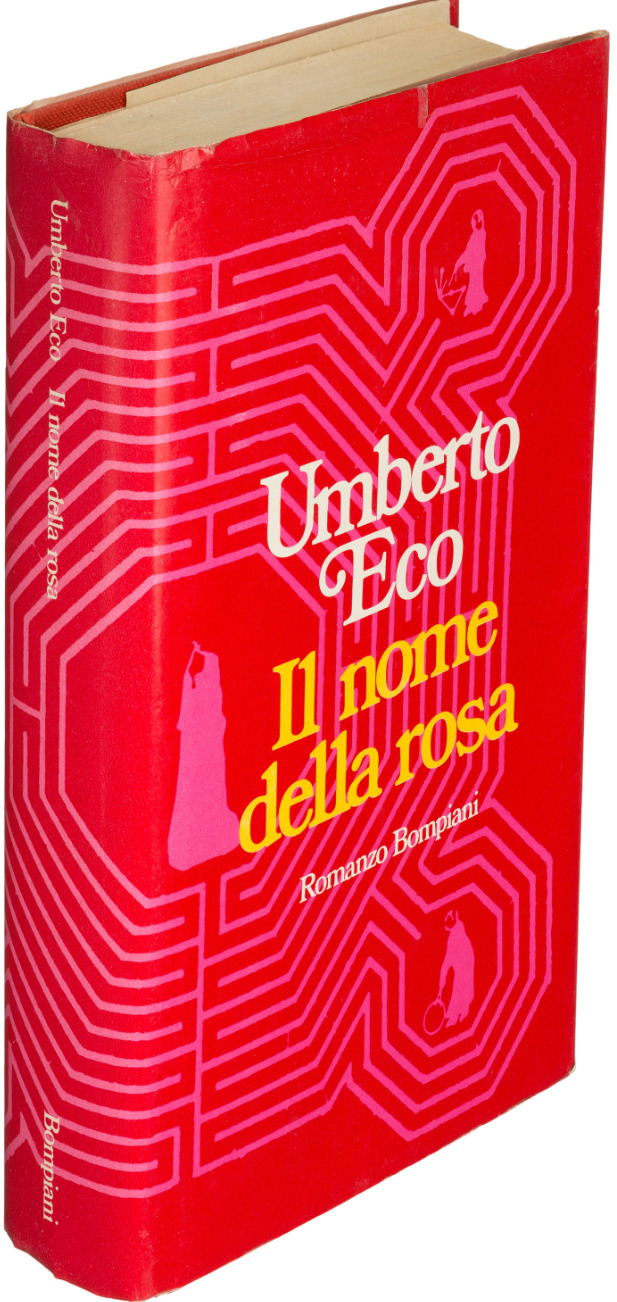
Note the map of the Aedificium:
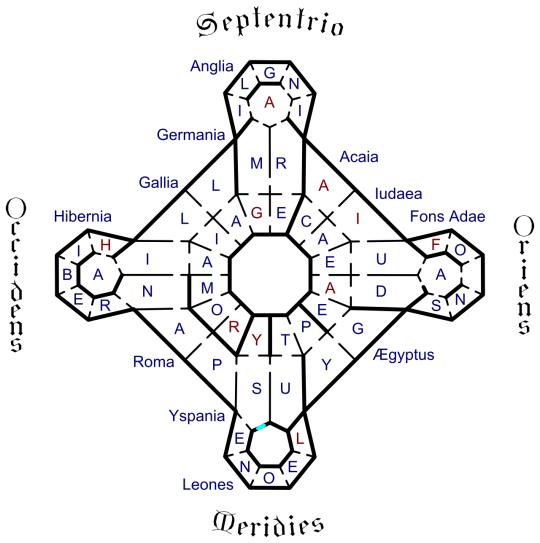
The final lines of The Name of the Rose are:
Stat rosa pristina nomine, nomina nuda tenemus.
The original rose remains only in name, we hold those names stripped.
This refers to a specific object in the story, but more broadly symbolizes historical records, art objects, and other artifacts lost to time. The Reims Labyrinth remains only in drawings, stories, and light projected on the ground where it once stood; the labyrinth itself was destroyed.
Nomen est; res non est. - The name exists; the thing does not.
As a side note, France uses the Reims Labyrinth as its symbol for historical monuments - an important reminder of how fragile their existence can be.

1K notes
·
View notes
Text
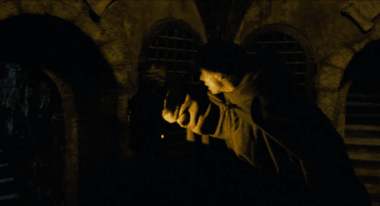

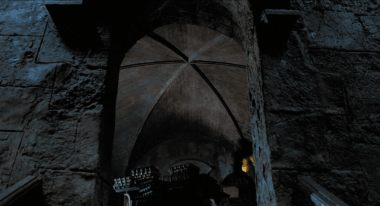










Sean Connery and Christian Slater - The Name of the Rose (1986)
#the name of the rose gif#sean connery gif#christian slater gif#jean-jacques annaud#umberto eco#william of baskerville#adso of melk#mystery films#80s movies#labyrinth#1980s#1986#gif#chronoscaph gif
208 notes
·
View notes
Text
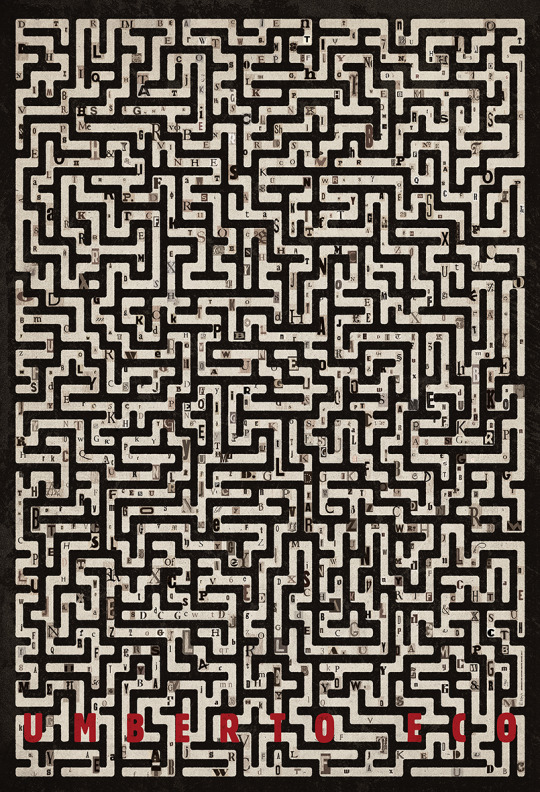
Ryszard Kaja (1962-2019) — Tribute to Umberto Eco [poster, 2017]
276 notes
·
View notes
Text
Those who buy only one book, read only that one and then get rid of it. They simply apply the consumer mentality to books, that is, they consider them a consumer product, a good. Those who love books know that a book is anything but a commodity.
Umberto Eco
#book quotes#literature#books and libraries#books and reading#umberto eco#literary#literature quotes#book collecting
150 notes
·
View notes
Text
Del único amor terrenal de mi vida no sabía, ni supe jamás, el nombre.
El nombre de la rosa (Umberto Eco)
109 notes
·
View notes
Text

The Name of the Rose by Umberto Eco
Adapted by Milo Manara
218 notes
·
View notes
Text

william and adso :)
366 notes
·
View notes
Text

114 notes
·
View notes
Text

#william be like:#the scriptorium scene in a nutshell#william of baskerville#the name of the rose#adso of melk#umberto eco#il nome della rosa
188 notes
·
View notes
Text
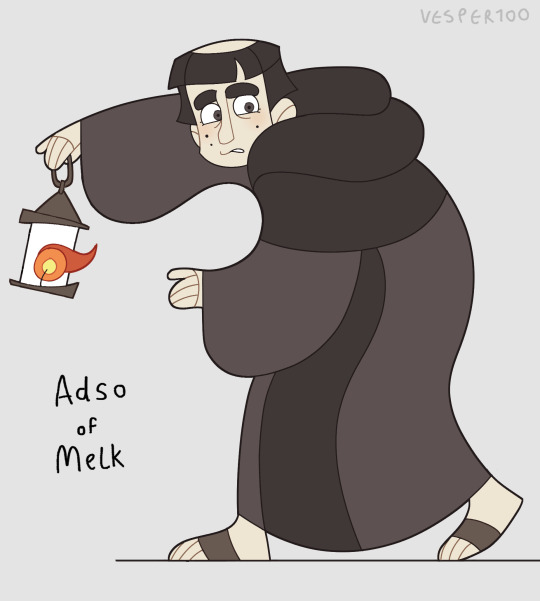
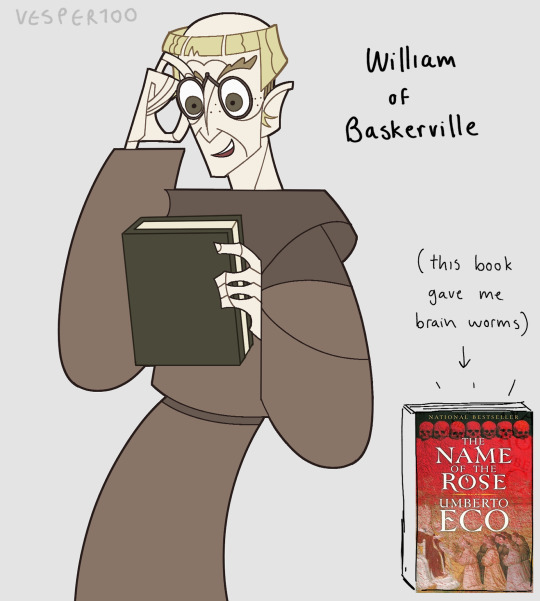



cartoon saloon x the name of the rose because i'm crazy but i'm free
#il nome della rosa#the name of the rose#william of baskerville#adso of melk#umberto eco#cartoon saloon#the secret of kells#wolfwalkers#and such#monkposting#i love it
125 notes
·
View notes
Quote
The beauty of the universe consists not only of unity in variety, but also of variety in unity.
Umberto Eco, The Name of the Rose
476 notes
·
View notes
Photo

Umberto Eco’s home library in Milan.
#bizarre au havre#library#books#photography#umberto eco#writer#home#interior#bibliothèque#livres#photographie#écrivain#maison#intérieur#milan
800 notes
·
View notes
Text
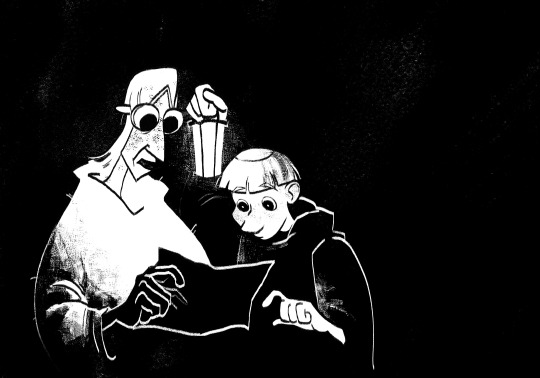
Here's a little spoiler from my college project. It's a collection of illustrations for The Name of the Rose, this one's my favorite so I decided it deserves it's own post.
#my art#the name of the rose#umberto eco#william of baskerville#adso of melk#artists on tumblr#illustration
235 notes
·
View notes
Text
"Il nemico per essere riconoscibile e temibile deve essere in casa, o alla soglia di casa. Ecco perchè gli ebrei. La divina provvidenza ce li ha dati, usiamoli, perdio, e preghiamo perché ci sia sempre qualche ebreo da temere e da odiare. Occorre un nemico per dare al popolo una speranza. Qualcuno ha detto che il patriottismo è l'ultimo rifugio delle canaglie: chi non ha principi morali si avvolge di solito in una bandiera, e i bastardi si richiamano sempre alla purezza della loro razza. L'identità nazionale è l'ultima risorsa dei diseredati. Ora il senso dell'identità si fonda sull'odio, sull'odio per chi non è identico. Bisogna coltivare l'odio come passione civile. Il nemico è l'amico dei popoli. Ci vuole sempre qualcuno da odiare per sentirsi giustificati nella propria miseria. L'odio è la vera passione primordiale. E' l'amore che è una situazione anomala. Per questo Cristo è stato ucciso: parlava contro natura. Non si ama qualcuno per tutta la vita, da questa speranza impossibile nascono adulterio, matricidio, tradimento dell'amico...Invece si può odiare qualcuno per tutta la vita. Purché sia sempre là a rinfocolare il nostro odio. L'odio riscalda il cuore."
Umberto Eco: Il cimitero di Praga
66 notes
·
View notes
Text
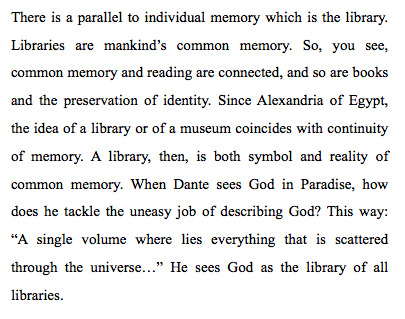
Umberto Eco "On Memory" (2015), interview transcript.
790 notes
·
View notes